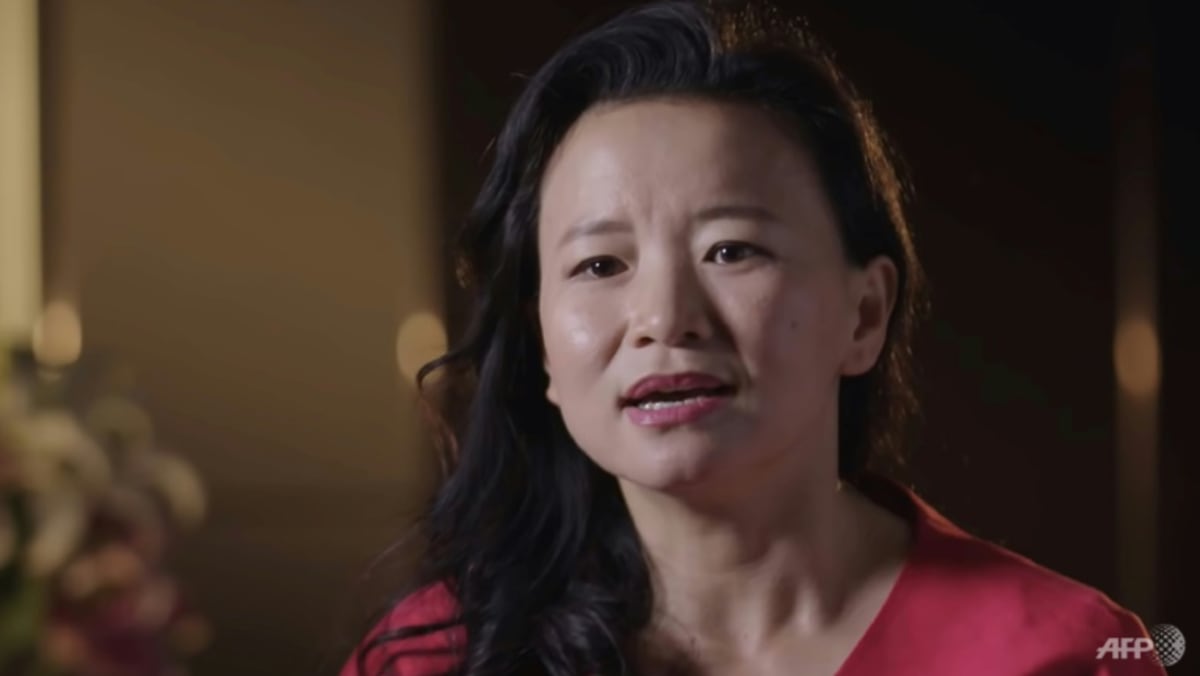SYDNEY: Australian journalist Cheng Lei was deported from China on Wednesday (Oct 11) after more than three years in detention on espionage charges widely seen as politically motivated.
Cheng, a former anchor for Chinese state broadcaster CGTN, had been held since August 2020.
The mother of two had been a familiar face on the state broadcaster’s English-language channel, conducting interviews with noted CEOs from around the world.
She was only formally arrested months after disappearing, and in an opaque case was eventually charged with “supplying state secrets overseas”.
“Her return brings an end to a very difficult few years,” Australian Prime Minister Anthony Albanese said, hailing her return home as news that “will be warmly welcomed, not just by her family and friends, but by all Australians”.
Cheng was detained at a time of strained relations between Beijing and Canberra, with her rough treatment souring relations further.
China has repeatedly detained foreign nationals at times of high political tension with their home nations, raising accusations of hostage diplomacy.
She was tried behind closed doors, with Australia’s ambassador to China blocked from entering the court to observe proceedings.
Australia’s government had long campaigned for her release, calling for China to follow “basic standards of justice, procedural fairness and humane treatment”.
Albanese said Cheng had been released after the “completion of legal processes in China”.
He also said that her return home would facilitate his visit to China at a “mutually agreed time” this year.
In a statement, China’s Ministry of State Security said the journalist had been deported “after serving her sentence” of two years and 11 months in prison on charges of “illegally providing state secrets overseas”.
Related:
Australian journalist held in China writes 'love letter' home
“I MISS THE SUN”
There had been growing fears for Cheng’s wellbeing in recent months, with partner Nick Coyle saying she was suffering from a “range of health issues”.
Born in Hunan province, Cheng emigrated to Australia as a child and became a citizen of her adoptive home.
She returned to China, joining the state broadcaster in 2012.
China does not allow citizens to hold dual nationality.
Cheng had written about her bleak prison conditions in China in a candid note dictated to Australian officials from jail and released last August.
“I miss the sun,” read the message, described as a “love letter” to Australia.
“In my cell, the sunlight shines through the window but I can stand in it for only 10 hours a year.”
Cheng’s case has often been compared with that of Chinese-born Australian writer Yang Jun, who has also been detained in China since 2019 on vaguely defined espionage charges.
Australia-China relations had been in deep freeze after Canberra barred Chinese tech firm Huawei from lucrative contracts and pushed back against Chinese influence campaigns in Australia.
China was also furious at Canberra’s calls for an investigation into the origins of the COVID-19 outbreak that killed millions and plunged the world’s economy into a multi-year crisis.
In retaliation, China introduced a swathe of de facto sanctions against Australian products, measures that have been slowly unwound as relations thaw.
“I think that there is an effort on both sides to communicate that the relationship between Australia and China is warming up and that we are past the worst period,” Daria Impiombato, China and human rights analyst at the Australian Strategic Policy Institute told AFP.
“But this is not the end of it … there are so many issues that remain.”
Nikita White, a campaigner at Amnesty International Australia, welcomed the “incredible news” of Cheng’s release and said she may need time to recover.
“A lot of people released after years in these conditions, there is a lot of celebration, but there is also often a lot of trauma. We hope she can get support from the government to get back to her best self,” White told AFP.



